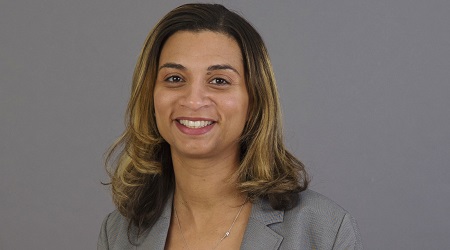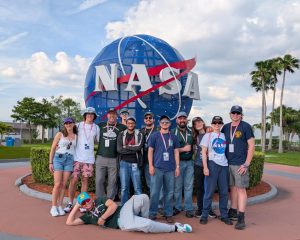Q & A with the new Associate Dean of Counseling and Advising

November 17, 2016
When the fiscal year 2016 draft audit report was released, it showed that the position of Associate Dean of Counseling and Advising was vacant. This position under Student Affairs was recently filled with the appointment of Nathania Montes, a long time counselor and professor at the college. She is now responsible for steering the affairs of the college’s counseling and advising office as it seeks to help students and community members with personalized services and comprehensive resources designed to ensure student success in all phases of academic, career and personal development. The Courier news reporter sat down with Montes to get a feel for her new position and to discuss some of the issues students here are faced with.
VM: Can you tell me who Nathania Montes is?
NM: I was born and raised in Downers Grove, so I am a local person and always grew up with COD in the back. In terms of being here, my background has been primarily counseling. I have a bachelor’s degree in psychology, a master’s degree in counseling psychology and a Ph.D. in counseling psychology as well. So I am really kind of student services-based. And when the opportunity emerged for a leadership position within counseling and advising, it seems like the next step in terms of, really instead of, focusing on the one-on-one interactions I’ve had with students for the last 14 years, to working on a more systemic programming. How can I impact more students through the services we offer in the department? In this position, I can help empower all of the counselors to reach more students.
VM: What measures do you have in place to assist students who have been placed on academic probation? And does your office help to improve students’ success?
NM: Right now, anytime a student has been placed on academic probation, once their GPA goes below 2.0, there is a whole place down in student’s registration that requires students to meet with a counselor before they can register for classes for the next term. So that is a kind of trigger in many ways for a student to come and meet with a counselor. Really what we want to find out is, what is happening that you aren’t able to be successful in your classes. Sometimes it can be personal issues that may be in the way. Sometimes it can be learning difficulties, the student is having a hard time in terms of grasping the information, or it could be trying to connect them with the right resources, like the learning commons, or with tutoring or whatever it is that the student needs. The forced interaction really allows for a conversation where we can really work with the students to think about what they need to be successful and how we can help with that success.
VM: COD has been seen as a place for students who are still undecided after high school. How has your office assisted these students to select a major and stay at COD?
NM: A lot of time when students declare that they are undecided, what happens is when they meet with a counselor we can go in one or two ways, that is where the career counseling piece comes in. Career counseling really helps a student in choosing a major, and once you decide what area you want to go into, there is a process from the major to the job. The counselor will sit down with the students and explore their values, goals, what are their skills and sometimes do a lot of career assessment to narrow it down to see what they are interested in and good at. Then we encourage the student to take some classes in their areas of interest. We ask them to meet with some faculty members to talk about some of the careers in those areas and see how that fit from job shadowing to internship opportunities so that student feels really comfortable with their choice. Lastly, we try to find some transfer schools that will fit in well.
VM: Is the counseling and advising office a place students take advantage of? How many appointments do you have per day on average?
NM: I don’t know the exact number on average. But if you think about the number of employees we have on staff, we have nine full-time counselors, 23 part-time counselors, an additional nine of what we call program advisors. All of them have appointments and more flexible time that they can answer a quick question and things like that. They are definitely accessible. I think a lot of time students don’t know about the services that we offer here, and a lot of time students believe I’ve got to sign up for my classes, and I need to meet with a counselor, not really understanding all of the other things they can work on with their counselors as well. So, counseling isn’t let me go pick up my classes. It is more of how do I work my counselors or advisors to come up with my educational plan, because that plan is a pathway through your whole time at COD. You can see how the classes link together, and how they can get me to my goal.
VM: How effective has the counseling and advising office been when it comes to dealing with students from diverse backgrounds at COD?
NM: The counseling and advising center values diversity. Many of our counselors are trained experts in multicultural counseling and also just in terms of overall diversity leadership and training as well. So several of our counselors are actually the people who go out to do diversity training and programming for the college. We really focus on understanding the whole student, whether it be gender, culture, ethnicity, race, and how that fits into a student experience at COD. Through professional development opportunities, we make sure that the counselors are up to date on trends in counseling and advising. And also many of our counselors are advisors to different groups and clubs as well.
VM: Amid the urge for more students to consider the STEM majors, how has your office been able to effectively assist students with a desire to pursue a STEM major?
NM: Again, our role in counseling and advising is not to decide the major for the student. Our role is to have as much information and as many different programs as possible so that then if an interest emerges for a student, then we say let’s see what COD offers. Now, typically when a student just expresses any kind of interest, a lot of what we talk about is: Why you don’t try this class? Why don’t you talk to an engineering faculty member? We are the tour guide, but the students point out what things they want to make sure they see. The students direct the path, and we are like the information provider.
VM: What are the some of the major concerns from students here at the COD?
NM: Students at COD have a lot going on. A lot of students in addition to being a student are working. Students have families. Students have a long commute, and a lot of students don’t have the time. Every student is dealing with something a little bit different, but a lot of what we hear about is students feel that they are under a lot of stress. They feel like they are under a lot of pressure to balance the different aspects of their lives, and students feel crunched by time. Students are also faced with financial issues; they are struggling with how can I go to school and work at the same time and do well.
The counseling and advising office is located in the Student Services Center (SSC), Room 3200. Students and community members can call (630) 942-2259 to schedule an appointment on the main campus or at regional centers in Addison, Carol Stream, Naperville, and Westmont.

















